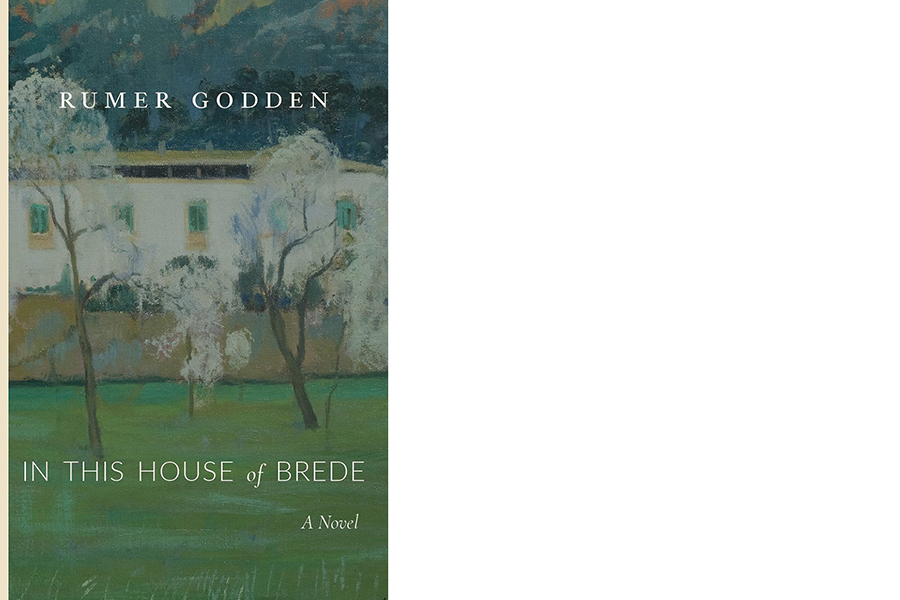A new edition of Rumor Godden’s masterful work will delight both the pious and impious.
Lenten Campaign 2025
This content is free of charge, as are all our articles.
Support us with a donation that is tax-deductible and enable us to continue to reach millions of readers.
“The motto was ‘Pax,’ but the word was set in a circle of thorns.” So begins Rumer Godden’s In this House of Brede, a masterful novel about the cloistered life of religious sisters.
The opening line is a proper manifesto, proclaiming to the reader all that must be known about the encounter the novel promises. The reader will find peace; it leaps from the pages. It is a truly otherworldly peace, inspired by the author’s own devotion to the Benedictine way of life. But it is not a romantic peace. Human vices and sufferings, real moments where the ways of this world seem at odds with the law of the Kingdom encircle and entwine that peace. And the beauty of the novel is that, like Karamazov’s kiss, the fictional life of Philippa Talbot contests doubt and disbelief, to bring about conversion of heart.

An accomplished career woman, successful by every worldly measure, Philippa Talbot’s vocation came as a shock to those who knew her. As Talbot prepares to enter the Benedictine Monastery at Brede, she describes her future life as a cloistered nun to her assistant, explaining why the woman would need to come to visit her. Talbot explains,
“An enclosed order is like a kind of power house,” said Mrs. Talbot. “A power house of prayer. You protect a power house, not to enclose the power, but to stop unauthorized people getting in to hinder its working.”
Embracing thoroughly modern sensibilities, Godden spares her reader none of the challenges to contemplative religious life. Embracing the modern world’s every question, Godden spins objections and arguments into a first-class narrative that lovingly reveals the priorities and traditions of monastic religious life.
Talbot enters Brede Abbey in search of more. As she explains to the sacristan, “I thought I was very well as I was,” she told the Brede Sacristan later, “a human, balanced person with a reasonable record; with the luck of having money, friends, love.” Talbot’s motives and portrayal make her an exceptionally sympathetic character. Yet, Godden avoids the pitfall of painting an overly saccrachine or romantic picture of religious life. As difficulties come in the monastery, as the nuns offend and forgive, both their humanity and faith come into clearer view.
In this House of Brede is a catechism of religious life. It is easy for one on the outside to protest saying, “Why don’t those nuns XYZ?” It is, however, an entirely different proposition to consider their life from their perspective. Some readers may bristle at the foreign Latin and monastic terms sprinkled throughout or the way decisions are made in the monastery. Nevertheless Godden’s terminology, descriptions, and plot are teaching the reader about the inner workings of life in an enclosed abbey. As nuns are nominated for particular duties, abbesses are elected, and foreign missions are considered, the reader is given a chance to consider how those conversations unfold behind the walls of a monastery cloister.
Fifty years after In the House of Brede first appeared, the novel remains, as its publishers describe “fiction of the highest caliber.” Now available in a handsome, clean edition from Cluny Media, this earnest exploration of the mercy of God will delight even impious readers.
Brede Abbey’s motto reads peace. Plenty of disturbances happen within the abbey’s walls. Whether death comes and takes a beloved nun from the community or the choir mistress lets loose in frustration at nuns that cannot properly sing the Church’s great chants, they gently jostle and conflict. And yet, like stones turned over and over against each other, they soften and lose their jagged edges. Bound together by the myriad ways they have pricked and chipped each others’ hearts, the sisters find that peace not of this world reigns within.
In this House of Brede. Cluny Media. 2021. Paperback, 390 pp. ISBN: 978-1952826474. Available new, here.








